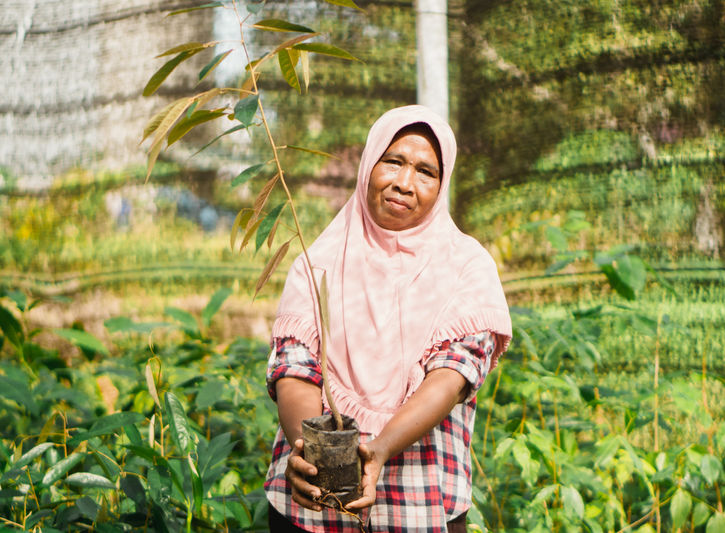
BORNEO
Restoring peat swamp forests in the incredibly species-rich Bornean rainforest is helping protect the planet, preserve biodiversity and promote community access to healthcare.
PLANTING PARTNER
Health in Harmony and local partner Alam Sehat Lestari (ASRI)

Gunung Palung National Park
This project aims to reforest over 50 hectares of pristine peat swamp forests in the Gunung Mentubang area in Indonesian Borneo. The project is extraordinary, with community, biodiversity and restoration at its core. The Gunung Palung National Park has lost 19% of its peat swamp primarily due to forest fires and farming. The area is incredibly biodiverse and home to critically-endangered Bornean orangutans and endangered proboscis monkeys. Local partner ASRI performed radical listening (a specific consultation style) with local communities to design a project that weaves healthcare and environmental restoration together. The result is a project that restores the local environment, protects habitats, meets community needs and involves genuine community participation.
OUR IMPACTS.

35
Hectares of forest planted to date

2,500
Orangutan protected

34,100
Trees to plant per year
LOCAL IMPACT.

"The hope is that for the future, (the) children can continue to protect the forest for their future."
Jaini, resident in Sawah Subvillage, Sedahan Jaya Village.

IMPACT ON NATURE.
Reforesting this area is vital for the health of Borneo's rainforest habitat. One of the Global 200 top priority ecoregions, Borneo's lowland peat swamp forests are some of the most species-rich in the world. These deep peat forests serve as a carbon sink and mitigate flooding and tidal salinity that damages coastal farmlands. This habitat diversity means an unprecedented array of plants and animals live in a relatively small area. The park is home to a nearly complete inventory of all of Borneo's fauna, including many rare, protected and native species including several wild cats like the Sunda clouded leopard, leopard cat, marbled cat, and flat-headed cat. It is also a critical habitat for approximately 2,500 orangutans from the 54,000 (approximate) remaining in the country. In addition to the incredible biodiversity and carbon sequestration, the park also contains two main rivers, the Matan River and the smaller Palung River. These provide much of the clean drinking water for the region.
PROJECT IMPACT.
Through this partnership, the aim is to plant at least 34,100 trees annually. The trees planted will be a strategic combination of 90% native trees (peat swamp species, mostly endangered or critically endangered dipterocarps) and 10% local varieties of native fruit trees planted on harder soil next to the river.
These will provide food for the community and local wildlife. The project also aims to prevent destructive fire and flooding by creating a buffer between the farms and forest, with community fire patrols and fire break digging in the dry season to prevent further encroachment by fire.

Project Gallery
























